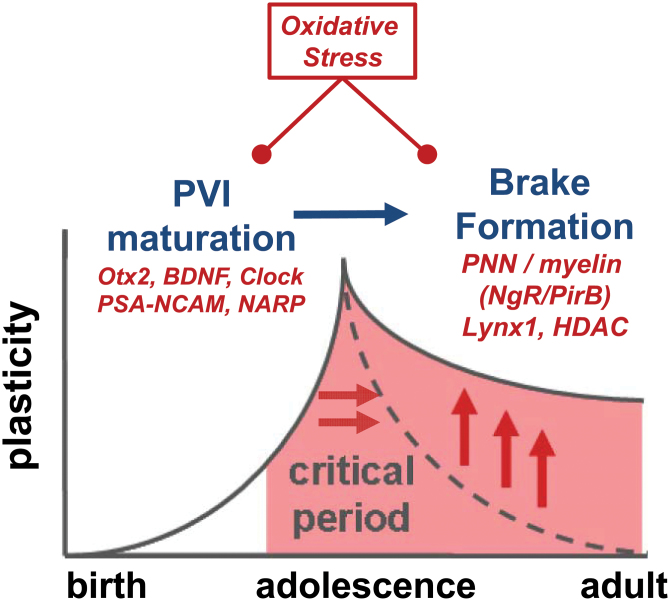Fig. 1.
Prolonged critical period plasticity as endophenotype. Schizophrenia symptoms may reflect delayed plasticity due to a failure of critical period onset/closure. Our hypothesis is that disease etiologies may dysregulate the expression of molecular brakes which normally follow parvalbumin-positive interneuron (PVI) maturation and extend developmental plasticity. Ultimately, this would destabilize circuit function in the face of undesirable information, as seen in mental illness. A common mechanism impacting PVI/perineuronal nets/myelin is redox dysregulation, which represents a novel target for preventive neurodevelopmental intervention. Alternatively, once PVI functional impairment is detected (eg, mismatch negativity [MMN], γ-oscillations), a supplemental reinforcement of molecular brakes on plasticity may be considered.

